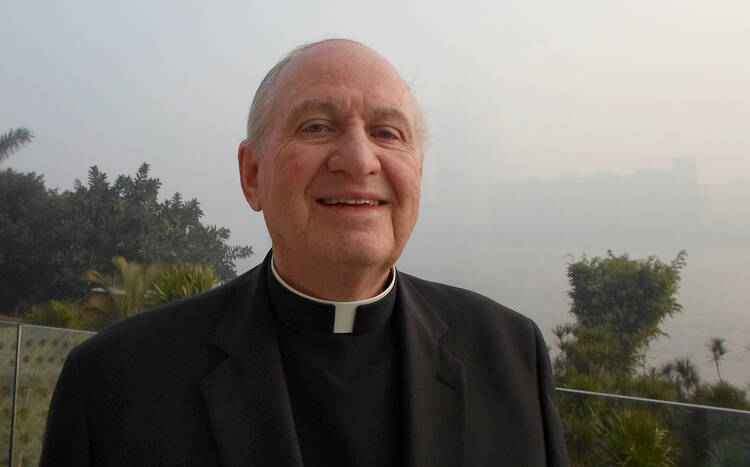Seven months after a delegation of U.S. bishops quietly met with Iranian religious leaders, their efforts appear to be on track. At a program on Oct. 29 on the dialogue and the relevance of moral questions about nuclear weapons, Bishop Richard E. Pates of Des Moines, Iowa, who met with Iranian ayatollahs in March, said Iranians “feel profoundly misunderstood by Americans.” Bishop Pates said the Muslim leaders said images like those of crowds waving signs carrying messages like “Death to America” are not representative of the thinking of most Iranians and have skewed impressions of the country in Western nations. According to Bishop Pates, the Iranian clerics noted that the majority of terrorist acts carried out by people who say they’re acting in the name of Islam are not in the Shiite branch of Islam but are Sunni Muslims. He added the clerics wanted to know why the United States continues to engage with countries like Saudi Arabia, which they described as home to extremists, while continuing to have a contentious relationship with Iran.
Iran-Catholic Dialogue Dividends
Show Comments (
)
Comments are automatically closed two weeks after an article's initial publication. See our comments policy for more.
The latest from america
Los Angeles Archbishop José H. Gomez was one of several community leaders who joined to open the Family Assistance Program, aiding those affected by recent ICE raids.
On Friday, Pope Leo XIV issued a statement on the theme "Migrants, missionaries of hope."
In Steven Spielberg’s “Close Encounters of the Third Kind,” an ordinary electrician has a transcendent encounter—with U.F.O.s, not God.
Many of my acquaintances have given up “reading about something that didn't happen.” But fiction has long-term and concrete value, both mentally and socially.








